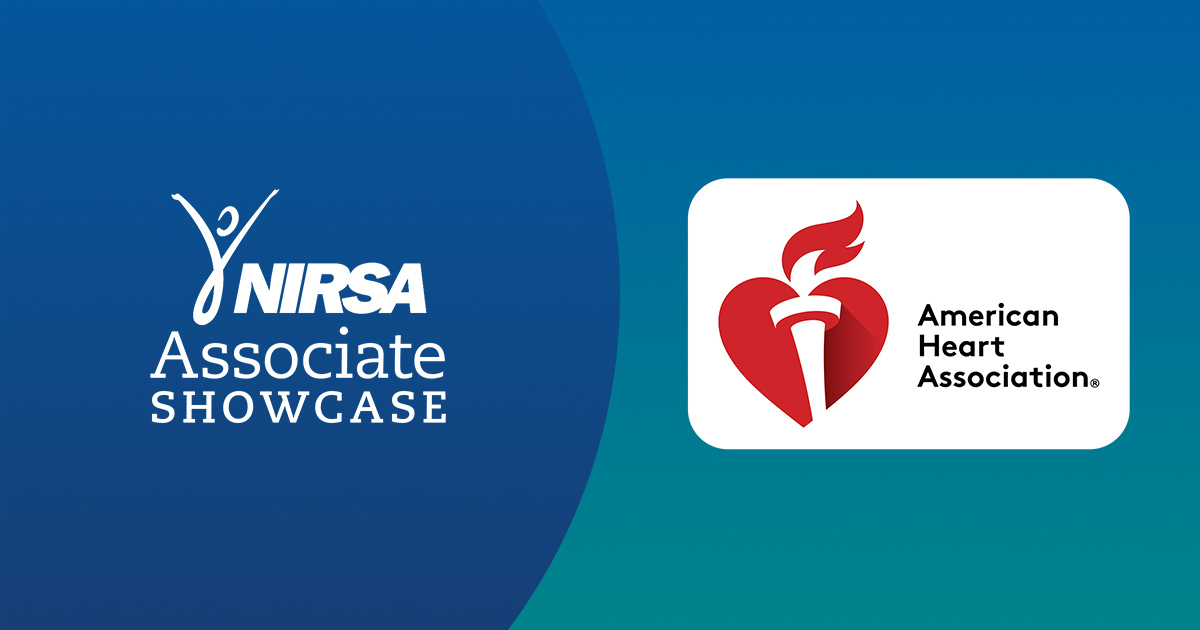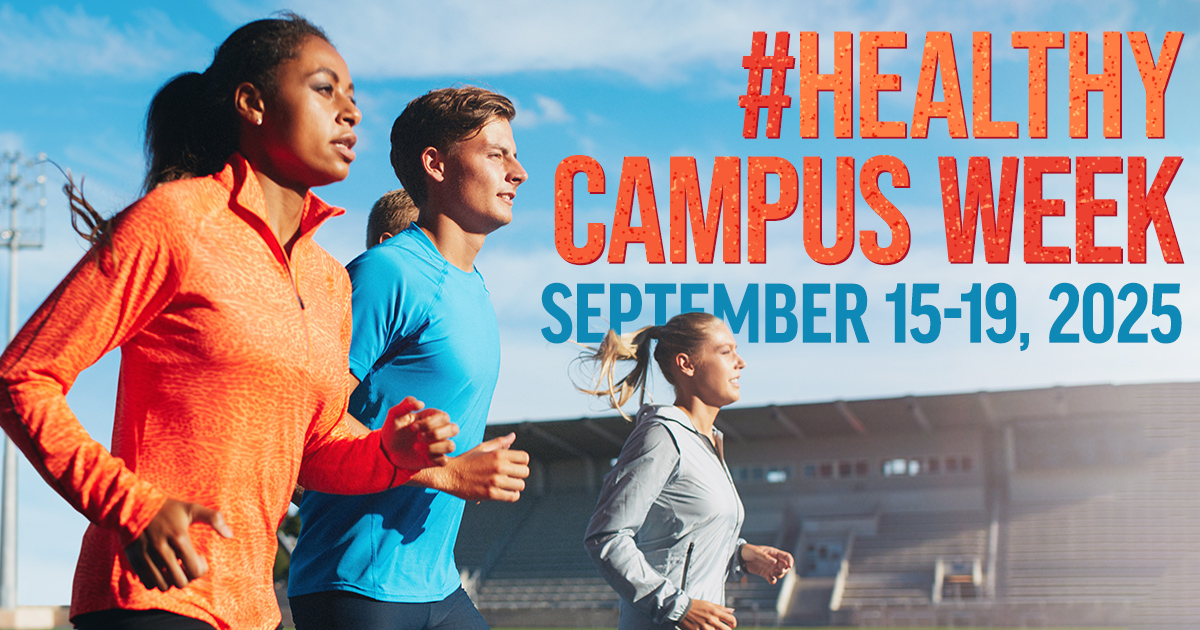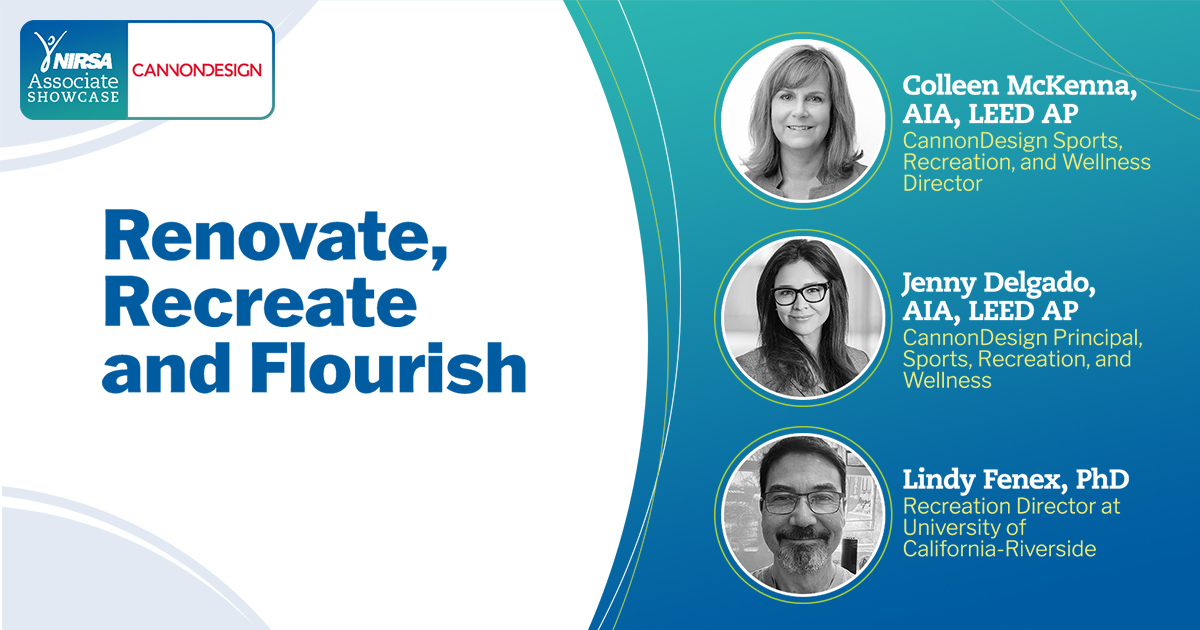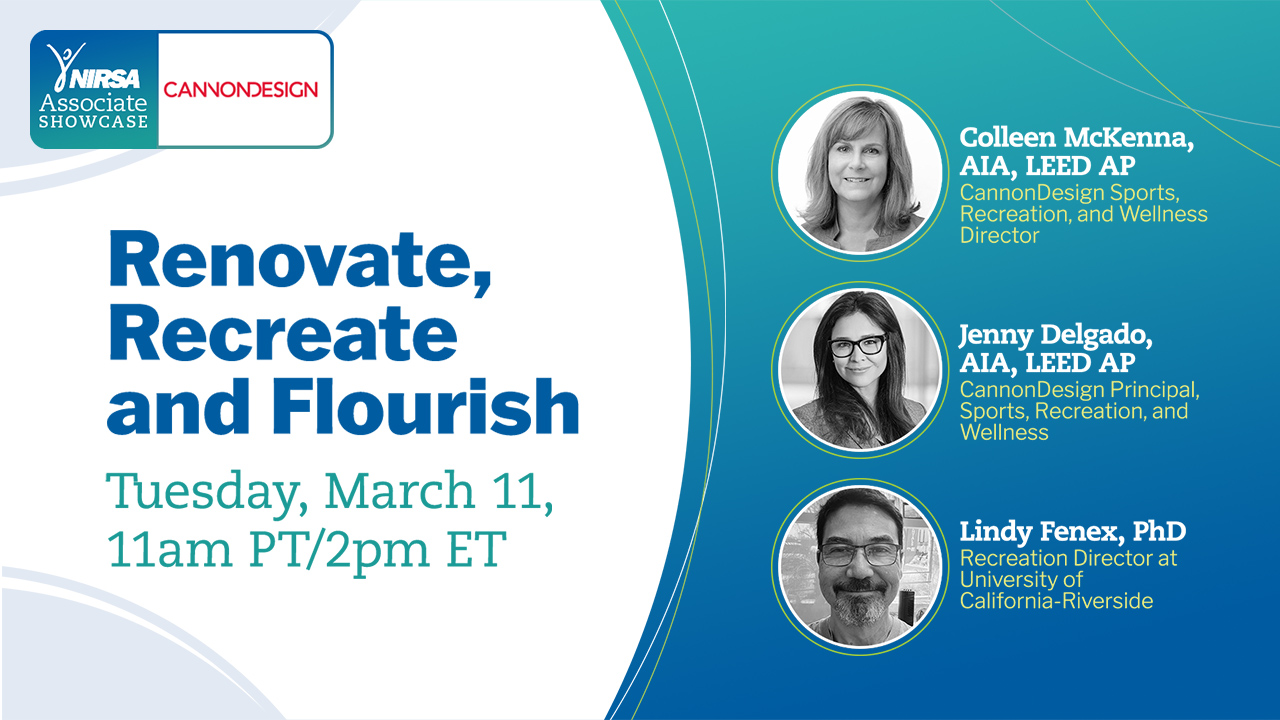Attendees showed off their singing skills at the American Heart Association’s “COVID & Athletics” webinar on May 20. In a demonstration led by AHA’s Demetria Cameron, attendees marched in place for 40 steps then sang the ABCs, which presenter Dr. Comilla Sasson cited as a practical method she uses in emergency room settings to qualify shortness of breath.
This simple, equipment-free exercise is a good one to conduct with student athletes and rec center users known to have previously contracted COVID-19. If they can’t get through their ABCs after marching, Dr. Sasson said, it may be an indication of lung disfunction.
A recording of this information-packed webinar—facilitated by Liz McKnight, Director, Health & Safety Digital Marketing at American Heart Association—is available for free to NIRSA members and non-members. Two randomly selected two attendees—Christopher McCollum and Josephine Parliament—each win an Echo Dot in a nod to the fact that, when asked, Alexa provides the AHA’s guidelines for CPR and chest compressions.
CPR administration is key, even during the pandemic
One of three panelists, Dr. Sasson, VP of ECC Science & Innovation at American Heart Association, discussed the AHA’s response to and free resources regarding COVID-19, the impacts of the pandemic on CPR administration, and tips she’s learned as an emergency physician traveling across the country during the pandemic.
She stressed the need to administer CPR right away on anyone experiencing cardiac arrest, noting viral transmission from chest compressions is low and should not prevent administration of a life-saving intervention.
AHA tools & national research database improve patient care
Christine Rutan, VP of Real World Evidence & Health IT at American Heart Association, described the AHA’s COVID-19 CVD Registry and other AHA tools that help improve care of COVID-19 patients by amassing evidence from hospitals and medical centers around the United States. The evidence is used to conduct research into topics like mortality rates, treatment patterns, and cardiovascular abnormalities in athletes related to COVID-19.
The AHA collaborates with the Outcomes Registry for Cardiac Conditions in Athletes (ORCCA), a national research database comprising more than 40 colleges or universities, to answer critical questions about cardiac disorders in young athletes related to COVID-19 and beyond.
Cardiac events low in young athletes with COVID-19
Panelist Dr. Jonathan Drezner, Director of University of Washington Medicine Center for Sports, overviewed findings from an observational cohort study of ORCCA data into the occurrence and implications of COVID-19 cardiac involvement on young, competitive athletes. The data show, among other key findings, the prevalence of cardiac involvement for collegiate athletes with SARS-CoV-2 is low, and they’re unlikely to experience adverse cardiac events as a result of COVID-19 in the short term.
That’s reassuring news to student athletes, coaches, facility managers, and other rec center operators, but Dr. Drezner emphasized the need for symptom-based testing strategies. He also proposed recommendations for return to play, indicating emergency planning and AED access should be standard at all recreational and fitness facilities.
Enroll your school in the ORCCA
Enrollment in the ORCCA is open, and participation in the registry contributes to ongoing research to improve the understanding of cardiac events in collegiate athletes related to COVID-19 and otherwise. Colleges or universities interested in participating in the registry should contact Dr. Drezner.
The roundtable recording is accessible for 60 days in NIRSA Connect. Take a few minutes to register for the recorded content.
- For more information about the Associate Showcase as part of NIRSA’s Ideas in Motion virtual roundtables, please contact NIRSA Expo & Corporate Relations Coordinator Kelley Hungerford.
Kelley Hungerford is currently the Assistant Director of Expo & Corporate Relations at NIRSA.








